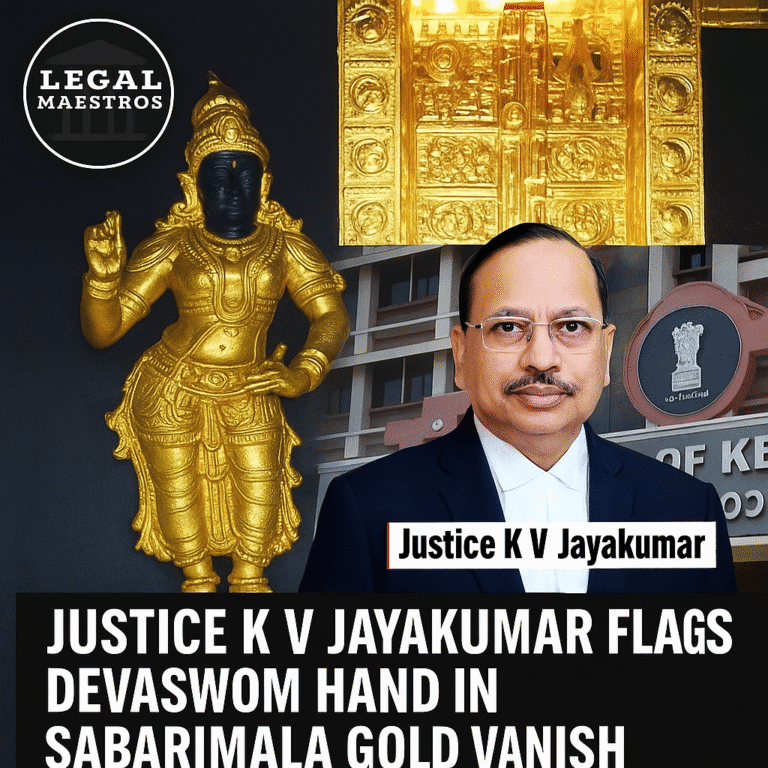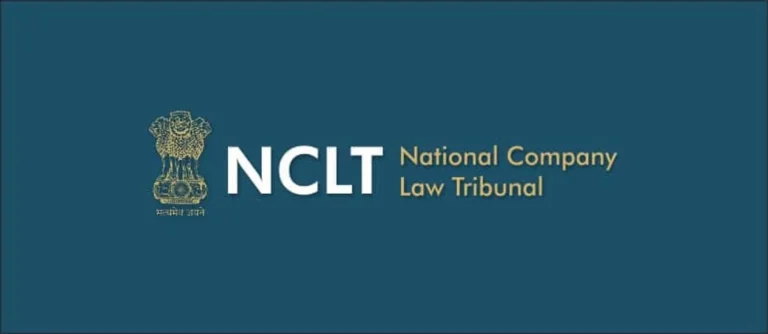
Why the Karnataka High Court’s Call for an Apology in the Thug Life Case from Kamal Haasan Is a Waste of Judicial Time
Introduction
At a promotional event for his new film “Thug Life,” legendary actor Kamal Haasan made a statement that suggested the Kannada language had its roots in Tamil. On June 3, 2025, the Karnataka High Court issued a harsh censure to Haasan for his statement.
Before proceeding with any petition relating to the distribution of the film in the state, the court required him to apologize for his comment and questioned him, “Are you a historian?” before moving forward with any motion.
A larger discussion regarding judicial priorities, the strain on courts, and the proper role of the judiciary in cultural issues has been sparked as a result of this demand for an apology, which may appear to be of little consequence.
For any queries or to publish an article or post or advertisement on our platform, do call at +91 6377460764 or email us at contact@legalmaestros.com.
A Trivial Dispute in a Major Court
When Kamal Haasan’s statements outraged a large number of Kannada speakers, the Karnataka Film Chamber of Commerce threatened to prohibit the film “Thug Life” until he apologized. The core of the disagreement is really plain.
The High Court ordered that Haasan first issue a public apology before allowing him to seek the intervention of the court in order to ensure the distribution of the film.
It is undeniable that elevating a relatively minor disagreement into a full-fledged judicial action by relegating this matter to a bench of the High Court raises problems about proportionality, notwithstanding the fact that it is essential to preserve cultural sensitivities.
For any queries or to publish an article or post or advertisement on our platform, do call at +91 6377460764 or email us at contact@legalmaestros.com.
For More Updates & Regular notes, Join Our WhatsApp group (https://chat.whatsapp.com/DkucckgAEJbCtXwXr2yIt0) and Telegram Group ( https://t.me/legalmaestroeducators )
The Overburdened Judiciary
India’s judicial system is famously overburdened with cases. It was estimated that the Karnataka High Court alone had over 2.7 lakh cases that were waiting as of August 2024. Additionally, the district and subordinate courts in the state were dealing with more than 20 lakh additional cases that were in the backlog.
Throughout the state of Karnataka, judges are responsible for processing hundreds of new applications every single day. These petitions range from difficult constitutional concerns to urgent criminal situations.
For any queries or to publish an article or post or advertisement on our platform, do call at +91 6377460764 or email us at contact@legalmaestros.com.
The prioritization of an apology for a cinematic statement that has been misunderstood appears to take important court time away from more serious concerns that affect human rights, economic conflicts, and public welfare with regard to this setting.
Executive and Industry Remedies Exist
The settlement of disagreements on the content of films and speech is frequently accomplished via the use of industry groups and executive action. An immediate response was taken by the Karnataka Film Chamber of Commerce, which threatened to impose a ban. The replies provided by such industry-level responses respect regional sensitivities without filling the dockets of the courts.
It is possible for state governments or courts with a narrower jurisdiction to intervene in cases when the remarks of an actor actually do harm to the public attitude. The instant recourse to the High Court establishes a precedent that every public statement, regardless of how little it may be, has the potential to become a full-fledged legal struggle, which raises the possibility of future lawsuits based on speculation.
For any queries or to publish an article or post or advertisement on our platform, do call at +91 6377460764 or email us at contact@legalmaestros.com.
Free Speech and Artistic Expression
Under the constitutional framework of India, artistic expression is afforded protection. Films frequently excite thinking, to the point that they may occasionally stir up debate. The requirement that artists apologize before allowing their work to be released violates the principles of free expression, despite the fact that artists have a social obligation.
It is necessary for the courts to strike a balance between expressionism and sensibility. The method that Haasan used in this instance was one that was compatible with vibrant creative debate; rather than offering a formal apology, he gave clarity.
Because of the judiciary’s demand on an apology, there is a possibility that public discourse and creative creativity may be impacted negatively.
For any queries or to publish an article or post or advertisement on our platform, do call at +91 6377460764 or email us at contact@legalmaestros.com.
Cultural Sensitivity vs. Judicial Intervention
Because India is such a varied culture, cultural awareness is absolutely necessary. The cultivation of communal cohesion is facilitated by respect for language and regional identity.
To arbitrate cultural issues at the drop of a hat is not the responsibility of the judiciary; rather, its function is to decide legal conflicts. The boundary between adjudication and moral condemnation is blurred as a result of the High Court’s involvement in conflicts like these.
It is possible that it will give the impression of being biased, so equating legal authority with cultural enforcement rather than impartial justice. Reminding parties of alternative venues that are better equipped to address such disputes should be the focus of the courts instead.
For any queries or to publish an article or post or advertisement on our platform, do call at +91 6377460764 or email us at contact@legalmaestros.com.
Proportionality in Judicial Action
In order to use judicial discretion, appropriate replies are required. High courts are responsible for the routine issuance of injunctions, the interpretation of legislation, and the protection of constitutional protections.
It is arguable that the High Court should take action regarding the ordering of film galleries to suspend releases or the handling of high-stakes litigation over elections.
A straightforward apology, on the other hand—one that Haasan provided in spirit—could have been made easier to effect via the use of consumer protection laws or a mediated settlement.
For any queries or to publish an article or post or advertisement on our platform, do call at +91 6377460764 or email us at contact@legalmaestros.com.
By conducting a comprehensive analysis of the cultural discourse surrounding a picture, the judicial system pushes the boundaries of proportionality and may establish a precedent that cannot be maintained.
Implications for Future Disputes
There is a possibility that judges may be inundated with cases concerning on-screen language, song lyrics, or off-the-cuff statements made by celebrities if future film scandals continue to wind up in the High Courts.
It is possible that this tendency may diminish public faith in the focus of the justice system and trivialize the seriousness of the courts. As a result of the rising backlog of cultural issues that are not urgent, plaintiffs who have more significant concerns may experience lengthier delays in the process.
For any queries or to publish an article or post or advertisement on our platform, do call at +91 6377460764 or email us at contact@legalmaestros.com.
Conclusion
A short public uproar may have been appeased by the Karnataka High Court’s demand that Kamal Haasan apologize before hearing his appeal on the case of “Thug Life,” but this does not significantly contribute to the improvement of the efficiency with which justice is administered.
Redirecting court resources to a film remark, rather than utilizing industry groups, mediation, or executive protections, seems to be excessive in light of the fact that there are hundreds of thousands of cases that are now open and waiting to be resolved.
In the purpose of conserving judicial time for substantive legal concerns and protecting the sanctity of free expression, courts should avoid such petty cultural disputes and instead concentrate on subjects that bear a higher significance to the general public.
For any queries or to publish an article or post or advertisement on our platform, do call at +91 6377460764 or email us at contact@legalmaestros.com.




![Research Assistantship @ Sahibnoor Singh Sindhu, [Remote; Stipend of Rs. 7.5k; Dec 2025 & Jan 2026]: Apply by Nov 14, 2025!](https://legalmaestros.com/wp-content/uploads/2025/11/Gemini_Generated_Image_s0k4u6s0k4u6s0k4-768x707.png)
![Karanjawala & Co Hiring Freshers for Legal Counsel [Immediate Joining; Full Time Position in Delhi]: Apply Now!](https://legalmaestros.com/wp-content/uploads/2025/11/Gemini_Generated_Image_52f8mg52f8mg52f8-768x711.png)
![Part-Time Legal Associate / Legal Intern @ Juris at Work [Remote]: Apply Now!](https://legalmaestros.com/wp-content/uploads/2025/11/ChatGPT-Image-Nov-12-2025-08_08_41-PM-768x768.png)
![JOB POST: Legal Content Manager at Lawctopus [3-7 Years PQE; Salary Upto Rs. 70k; Remote]: Rolling Applications!](https://legalmaestros.com/wp-content/uploads/2025/11/ChatGPT-Image-Nov-12-2025-08_01_56-PM-768x768.png)